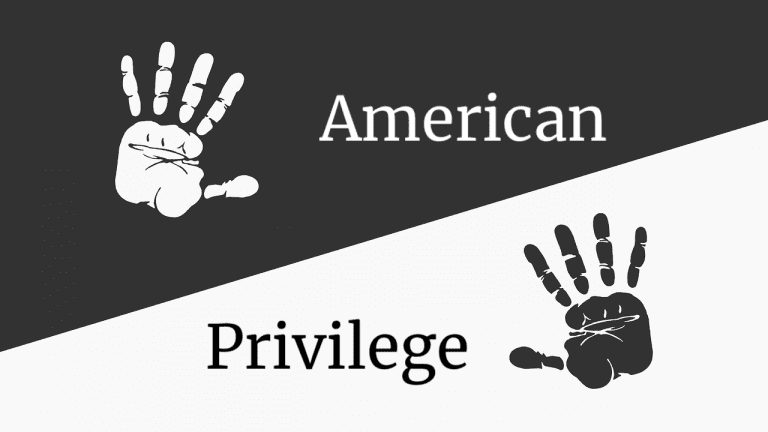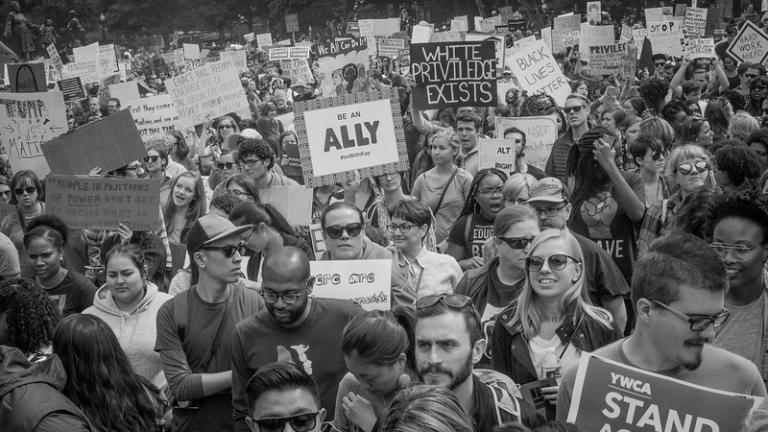 Let’s talk about American privilege,… the elephant not in the room at the moment. In this cultural moment, the focus of conversation is on racism, white privilege, and policing. People rightly lament the injustice that has led to death and resentment.
Let’s talk about American privilege,… the elephant not in the room at the moment. In this cultural moment, the focus of conversation is on racism, white privilege, and policing. People rightly lament the injustice that has led to death and resentment.
In one way or another, many people suggest that America is (one of) the most racist countries in the world. One’s assessment will certainly be affected by factors such as whether you have spent substantial time in diverse cultural settings around the world. My point here is not to arbitrate that debate. Instead, I raise the subject of “American privilege” and its relationship to current conversations about race.
Racism Outside America
Numerous studies have pointed out the pervasive racism that exists throughout the world. For example, …
- In Racism without Racists (2010 edition), Bonilla-Silva points out that East Asians “are more likely than even whites to hold anti-black and anti-Latino views” (p. 190).
- A myriad of articles, studies, and books chronicles India’s entrenched racism, long-rooted and reinforced by its caste system.
- In Pakistan, one job advertisement for sewer cleaners said that only Christian should apply.
- Turning to Africa, it was only in 1994 that Hutus carried out a genocide in Rwanda against the Tutsi and Twa.
- An ongoing crisis continues today in Myanmar (formerly Burma) where the government has sought to exterminate the Rohingya people. To learn about efforts to protect innocent people, check out the powerful documentary Free Burma Rangers.
- In South America, one finds different shades of racism (literally). People discriminate against persons of differing skin tones. Most often, indigenous native Americans and blacks are the subjects of racist injustice. For an academic treatment, see here.
- In China, racism is not only strong against Africans, it quietly extends to various minority groups (from the majority Han people).
Here’s the point to observe –– racism in these countries largely goes unnoticed and undiscussed by the vast majority of people. In short, the topic is a non-issue for most people. Raising the subject will elicit either of two responses. The first is an unapologetic acknowledgment (“Of course, we don’t like them. They are dirty.”). The second response is hushed impatience for even raising the subject.
What is American Privilege?
Talking about racism is an American privilege. The fact that Americans can have and are having debates and protests about racism is an opportunity that never arises in countless other countries. Besides this obvious political freedom, I’ll mention two reasons I speak of “American privilege.”
-
Manifest racism is a mark of American privilege
Racial conflict, misunderstanding, and even open racism are the natural products of creating a diverse society. I don’t imply that all forms and degrees of racism are inevitable for an indefinite amount of time. Rather, whenever a country brings together people from diverging backgrounds, assumptions, and advantages, we should expect the birth pangs to be severe.
In other words, this is what you get when we try to form a nation that seeks racial and ethnic reconciliation. The pains of birth do not last forever. Likewise, we need not yield to fatalistic thinking. Progress can be made. It has been made. Yet, it will not come at the pace that we’d prefer. Such work is labor.
We get the opportunity to do this hard work to create a society that is more just than if we were to overlook or ignore the goal of being better humans, not merely better whites, blacks, etc.
-
Addressing racism is American privilege
An analogy will help us grasp the second aspect of our privilege. American privilege is akin to the privilege of being diagnosed with cancer rather than having cancer but it remaining undiagnosed. Two individuals may have cancer. But only one gets to address it.
Billions of people around the world do not enjoy these privileges. They hardly notice overt evidence of racial injustice because their society hardly cares about the matter. Different ethnic groups remain separated. Few, if anyone, seeks to build unity amid the diversity. Consequently, little is done to address racism, whether in an individual’s hearts or at a systemic level.
These observations should affect how we engage other people and the current debate about race in America.
First, we should be grateful that we have countless people involved in the conversation and seeking to take action. We should be thankful for the privilege of understanding racial tensions and reconciliation better than we otherwise would. After all, we have a wealth of research and resources on the topic.
Second, we should rejoice because we have hope. We know that America has metastatic cancer. It’s called racism. Now, we can do something about it. That’s exciting and worthwhile work for us to take part in.
Finally, we need to change the tone of our conversation. I have two things in mind.
On the one hand, being encouraged that of the progress that is being made (however slow it may be), we can speak to others with patience, empathy, and compassion. We can expect them to join us on the journey to becoming people who seek racial justice, even if we move at a different pace. At least, we are in a society where there is movement and the potential for transformation.
On the other hand, we can engage in protests and dialogue in ways that do not needlessly provoke needless controversy. For instance, we need not throw all of America under the proverbial bus as though it were hardly redeemable. When we repeatedly speak of the country as though there was little or no hope, we undermine unity and discourage ongoing processing.
For related posts, see…
“What’s a n***er?” How I answered my adopted daughter (Guest Post)
Does God Love Black People More Than the Church?
Are these seminary professors actually racist?
Credit for Hands Photo: Flickr (public domain)
Credit for Protesters Photo: Flickr/philipcohen












